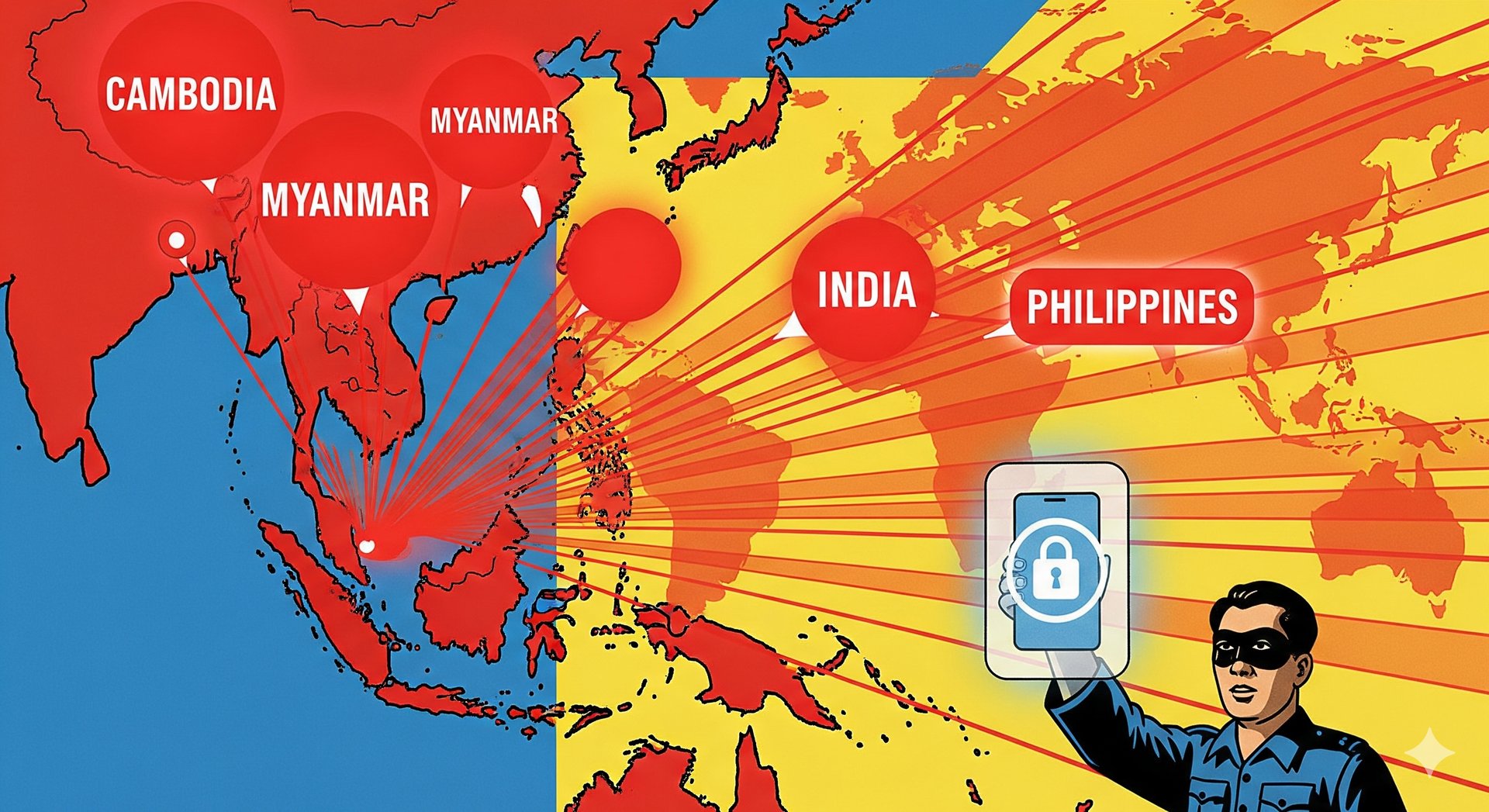Check requirements for Asia's Retirement Visas
Asia's Scamdemic: A Global Problem You Can't Ignore
Discover why Asia has become a hotspot for sophisticated cyber scams and how these "fraud factories" affect people worldwide. Learn to spot the red flags and protect yourself and your loved ones from falling victim.
SOCIAL-ECONOMIC
9/4/20253 min read
Why Asia is a Hotspot for Scams
The rise of Southeast Asia as a cybercrime hub isn't by chance. It's a perfect storm of several factors that have created an environment where large-scale, organized fraud can thrive.
First, there's the economic downturn. Criminal organizations, particularly those from China, used to make a lot of money from illegal gambling. When the COVID-19 pandemic hit and lockdowns prevented people from traveling to casinos, these groups had to find new ways to make money. They quickly shifted their operations to online scams, which proved to be even more profitable.
Second, there is a human trafficking element that is often overlooked. These scam compounds aren't run by a few people working from home. They are large-scale operations that rely on a modern form of slavery. Victims are often lured with fake job promises and then held against their will, forced to work brutal hours scamming people all over the world. They're tortured if they fail to meet their quotas, and some have even been sold for their organs if they can't make enough money.
Third, political instability and weak governance in certain countries play a huge role. Areas with ongoing conflict or where the rule of law is not strong become havens for these criminal groups. They can operate with impunity because they have corrupt officials on their payrolls. The money they make from scams is so vast—estimated to be tens of billions of dollars annually—that it can even fuel civil conflicts, creating a vicious cycle.
Finally, the rapid digitalization of the region, combined with a lack of robust regulatory frameworks, has created a fertile ground for cybercrime. The same infrastructure that enables e-commerce and digital payments also makes it easy for scammers to reach a massive audience and launder their illicit gains, often through cryptocurrencies.
(Use our Scam App to report any incidences of Scam you may have come across personally or with a friend or relative)
How Does it Affect You, Even if You're Thousands of Miles Away?
It's easy to think that if you live in North America, Europe, or anywhere else far from Southeast Asia, these scams don't concern you. But they absolutely do. I've had friends who have lost their life savings to "pig butchering" scams—a term used to describe scammers who "fatten up" their victims by building a fake romantic or professional relationship before "slaughtering" them by convincing them to invest in fraudulent schemes.
These criminal syndicates target people all over the world, not just in Asia. They use sophisticated social engineering tactics and technology, including deepfakes, to manipulate their victims. The profits from these scams are then laundered through global financial systems, affecting the stability of the entire global economy. This is not just a financial crime; it is a human rights crisis and a global security threat
How to Prevent Scams
Protecting yourself requires a combination of awareness, vigilance, and practical steps.
Be Skeptical of Unsolicited Contact: Be very wary of messages or calls from people you don't know, especially if they are from a foreign number or a new contact on social media. My personal rule of thumb is: if it's too good to be true, it probably is. I will not engage with anyone who initiates contact with me unless they are in my network of family and friends.
Verify, Verify, Verify: If you get a message from a supposed "friend" or "family member" asking for money, call them on a known, trusted number to verify the request. Criminals are now using deepfake technology to imitate voices and video, so relying on video chat alone is no longer enough.
Secure Your Digital Life: Use multi-factor authentication (MFA) on all your accounts. Use strong, unique passwords for every service. Use a password manager to keep track of them all. Be extremely cautious about clicking on links or downloading attachments from unknown senders.
Know the Red Flags of "Pig Butchering": Scammers will often build a relationship with you, sometimes for months, before they even mention money. They'll talk about a fake cryptocurrency or investment opportunity that has incredibly high returns. They will create a sense of urgency and pressure you to act quickly. If you feel this pressure, stop and think.
Talk About It: Scammers rely on shame and isolation to keep their victims from reporting the crime. If you've been scammed or think you're being targeted, tell someone. Talk to a friend, a family member, or law enforcement. The more we talk about these scams, the more we can protect each other.
The fight against these scams is a collective effort. Governments, law enforcement, and technology companies are all working to disrupt these criminal networks. But the most powerful tool we have is our own awareness. By staying informed and being cautious, we can make it harder for scammers to succeed.
What are your thoughts on this? Have you or anyone you know ever encountered an online scam? Let's discuss more!
This article is for informational purposes only and does not constitute financial advice. Consult a qualified financial professional before making any financial decisions, as investments and strategies involve risk.


Address
Blk 8 Cantonment Close
SIngapore